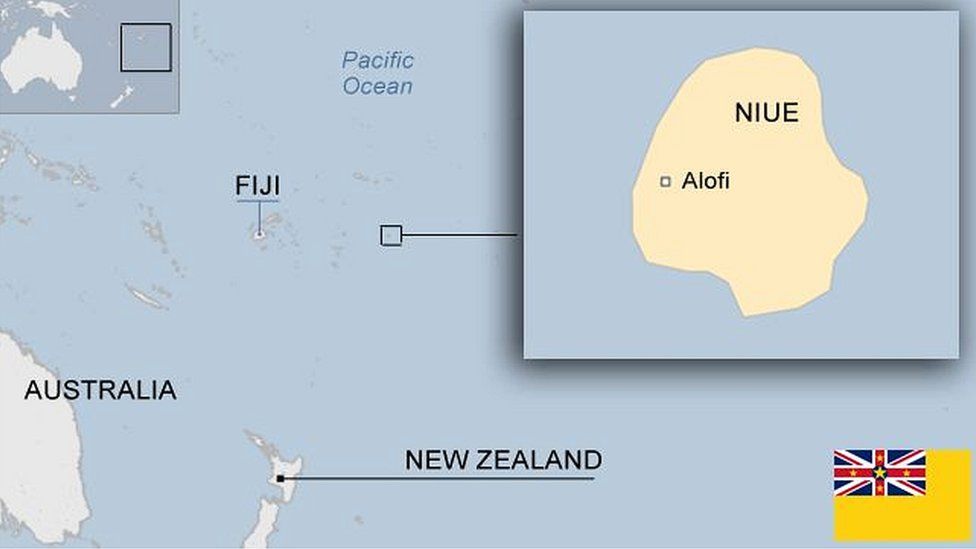Niue country profile
- Published

Home to some 2,000 people, the Pacific island of Niue is trying to encourage some of the 20,000 overseas Niueans - many of whom migrated to New Zealand - to return.
Niue is a self-governing state in free association with New Zealand, which handles Niue's defence and foreign policy. All Niueans are New Zealand citizens, and New Zealand is its main source of aid and biggest trading partner.
Fishing, agriculture and tourism are economic mainstays and the island attracts whale-watchers, divers and yachting enthusiasts.
Niue has embraced the internet, earning money from the sale of its suffix.
Lying between Tonga and the Cook Islands, Niue was initially settled by Samoans. British missionaries arrived in the 19th Century and from 1901 Niue was administered from New Zealand, becoming self-governing in 1974.
Read more country profiles, external - Profiles by BBC Monitoring, external
NIUE: FACTS
Capital: Alofi
Area: 261.4 sq km
Population: 2,000
Languages: English, Niuean
Life expectancy: 71 years (men) 75 years (women)
LEADERS
Head of state: King Charles III
Prime minister: Dalton Tagelagi
Dalton Tagelagi speaking at press conference on a visit to Wellington, New Zealand, in July 2022
Dalton Tagelagi was elected premier by Niue's legislative assembly in June 2020 following the May general election.
He is a bowls player and has competed for Niue at the 2014, 2018 and 2022 Commonwealth Games.
MEDIA
Most of Niue's media is government-owned and funded. Expansion of the internet has led to a growth in online media.
The Broadcasting Corporation of Niue (BCN) runs the island's only television network Television Niue and Radio Sunshine.
The Niue Star is the country's only independent source of print news.
TIMELINE
Since the mid-20 Century, Niue has seen significant population decline, with many islanders leaving for New Zealand
Key dates in Niue's history:
c. 900AD - Polynesians from Samoa settle on Niue.
16th Century - Further round of migration from Tonga.
1774 - Britain's Captain James Cook makes three attempts to land, but the inhabitants refuse him permission to do so. He supposedly names the island "Savage Island" because, the Niueans were painted in what appeared to be blood - in fact a red banana.
19th Century - British missionaries arrive.
1889 - Niuean leaders request protection for the island by the UK.
1900 - A petition by Cook Islanders to the UK asking for annexation also includes Niue. Niue is briefly a British protectorate.
1901 - Niue is brought within the boundaries of New Zealand and the island is subsequently administered from New Zealand.
1974 - Niue votes to become an autonomous region under the sovereignty of New Zealand.
2003 - Niue becomes the world's first country to offer a free wireless internet service to all residents.
2004 - Cyclone Heta causes substantial damage across the island, including the capital Alofi.
2022 - The US recognizes the Cook Islands and Niue as sovereign states, in line with a new Pacific plan that will pump $1.4bn into the region.
Subsistence agriculture is part of Niue's culture and nearly all households have plantations of taro
Related Topics
- Published23 August 2023
- Published23 August 2023
- Published27 October 2023
- Published30 October 2023
- Published23 August 2023
- Published22 August 2023